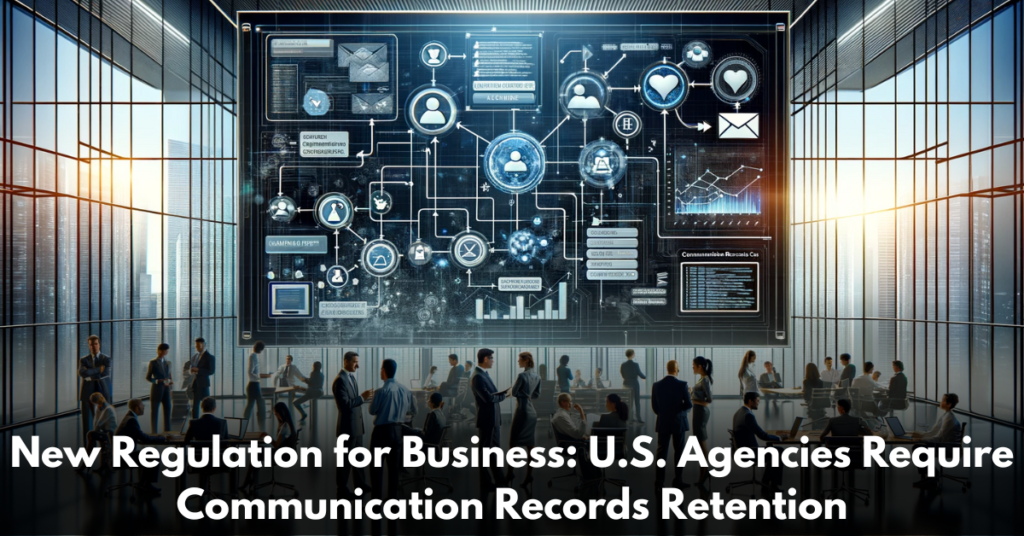New Regulation for Business: U.S. Agencies Require Communication Records Retention
In the modern government workplace, especially for U.S. federal agencies, electronic messaging has become an important way to talk to each other. But with more people using more communication channels, it is important to keep these messages safe so that you can find them again in the future and follow all the rules and laws that apply.
The Federal Records Act (FRA) says that federal agencies must keep records of their activities and transactions. These records should be kept for as long as they are useful for business, the law, or history.
Federal agencies must now keep electronic messages to and from top agency officials. The rule now includes “email and other electronic messages” and includes rules for how to automatically keep these messages for the highest level of federal officials.
The National Archives and Records Administration (NARA) released new records requirements on January 5. These requirements clarify the Capstone approach, which is a rule that has been in place for ten years and guides the retention of electronic communications. The Capstone approach was created in 2013 to automatically keep track of emails sent and received by top agency officials based on their jobs.
The Capstone approach was made to work with email in particular. However, it now covers all kinds of electronic messages, such as text messages, email-based chat, and chat messengers that work on their own. This includes electronic messages sent or received on personal devices that meet the definition of a record and must be forwarded or copied to an official account within 20 days.
Non-Capstone employees’ messages, including electronic communications other than email, are “temporarily” disposed of. Agency officials must keep these messages for at least seven years, while support and administrative positions without supervisors only have to keep them for three years.
The range of electronic messages that are covered has grown to include all of them, such as text messages, email-based chat, and instant messaging apps. These messages must now be kept forever for 15 to 30 years, or until they are declassified, whichever comes first.
Federal agencies must have the technical capabilities to save and preserve electronic messages properly. Several agencies have used DataParser to capture these communications and push them into their email archives or cloud storage.
Policies and procedures for the creation, maintenance, and preservation of electronic messages should cover topics such as identifying which electronic messages are considered federal records, establishing retention periods, providing access to electronic messages in response to FOIA requests, ensuring security and confidentiality, and providing training to employees on the proper use and preservation of electronic messages.



